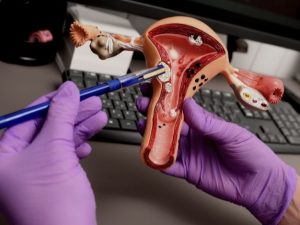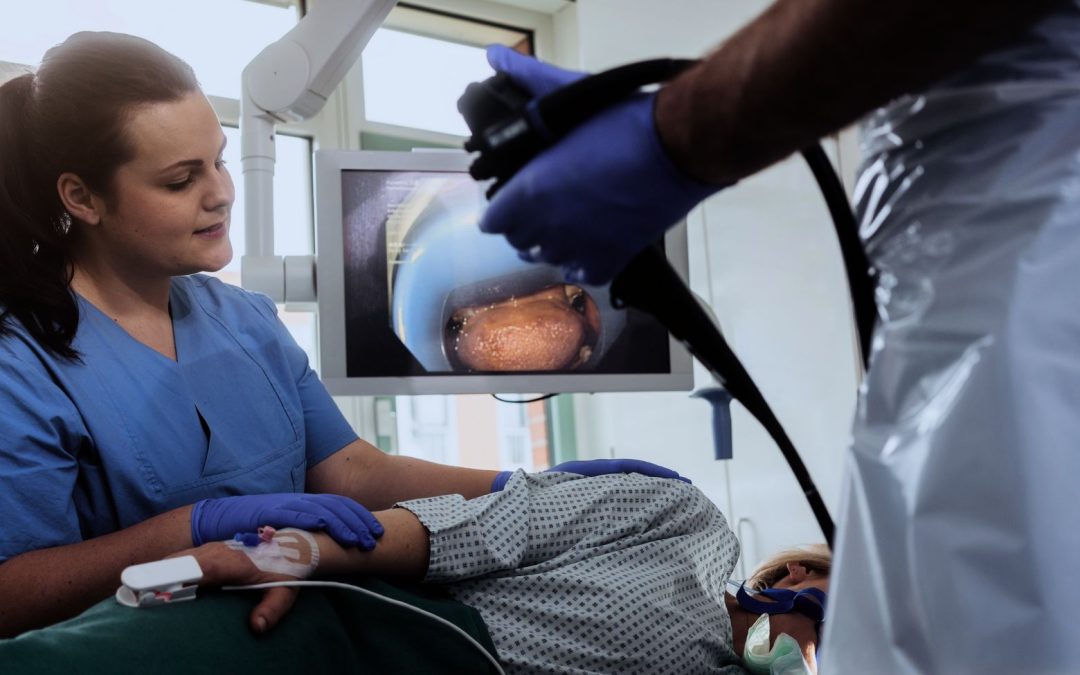Events | Holidays & Freebies National Nurses Week: Honoring Our Favorite Pop Culture Practitioners National Nurses Week runs from May 6-12, and includes a variety of ways to honor nurses. This year’s theme is “Nurses Make the Difference.” As part...

Log in to continue your nursing CEUs

MPH, MSN, WHNP-BC
July is Fibroid Awareness Month! I first heard of the term “fibroid” when I had my first women’s health appointment as a teenager many years ago.
I had no idea what it meant, and I didn’t realize many people experienced fibroids.
As I studied women’s health and became a women’s health nurse practitioner, I realized that fibroids are very common, yet very unknown to many people. For this Fibroid Awareness Month, I will answer common questions regarding fibroids.
Whether you have fibroids or just want to learn more, this post is for you!
Fibroids are benign (which also means non-cancerous) growths that consist of smooth muscle cells and connective tissue. Another term for fibroids is leiomyomas or uterine growths. Fibroids grow in the uterus.
Sometimes, fibroids can emerge as just one by itself or in a cluster. They also vary drastically in size with some as small as a fingernail to as big as a grapefruit.
In some cases, fibroids can grow into the uterine cavity or extend outside of the uterus.
It is estimated that approximately 20-50% of people with a uterus of reproductive age (ages 18-45) currently have fibroids. Fibroids are extremely common, where over 75% of all people with a uterus will develop fibroids between ages 18-45.
Even though fibroids are extremely common, they are also very unpredictable. Since they can be extremely small, go away on their own, and may not affect daily life, some people can live with a fibroid and never notice it.
Despite this, about one-third of fibroids are large enough to be detected by a health care provider during a physical exam.
The exact cause of fibroids is unknown.
Some research suggests each fibroid emerges from an abnormal muscle cell in the uterus and multiplies rapidly when encountering estrogen. However, more research is needed to learn more about the definite cause for fibroids.

Risk factors may include:
Unfortunately, there is no singular risk factor for fibroids other than having a uterus.
It is important to note that Black women are more likely to develop fibroids than other women. There is no known specific reason for the high incidence of fibroids in Black women.
There are some people who do not experience symptoms with fibroids, depending on the location and size. However, those with larger fibroids or multiple fibroids can have really intense symptoms.
Some fibroid symptoms are:

Sometimes, fibroids go away on their own. Other times, they can grow. Sometimes, they go away and come back. Fibroids are REALLY unpredictable and vary from person to person.
This is why fibroid awareness month exists.
If fibroids are left untreated, they can interfere with fertility and sexual activity. Some people with fibroids report pain during sex, trouble getting pregnant, or chronic pelvic pain.
The standard to determine if someone has fibroids is a pelvic ultrasound or similar imaging testing. In order to have a pelvic ultrasound, you would need to see a health care provider.
Unfortunately, there is no cure for fibroids. There are many ways to live with fibroids, such as taking medication or undergoing surgery.
Since fibroid situations vary person to person, it is important to discuss your concerns with a health care provider.
There are some medication options to consider, such as over the counter pain medications. Hormonal contraception, like the Depo shot or the pill, may also help with decreasing the bleeding.
There are also surgical methods as well, but surgery only removes the present fibroids. Even after a myomectomy (the name for fibroid surgery removal), some fibroids can reemerge.

Living with fibroids is not easy, especially if they are recurrent and interfere with your quality of life.
Because of the nature of fibroids, it is critical to find a health care provider who understands your concerns and can discuss your options. For guidance on fibroid management, talk to your health care provider about your concerns!
Share this post to raise awareness of fibroids and fibroid awareness month.
Love what you read?
Share our insider knowledge and tips!
Read More

by Kari Williams | May 6, 2024 | Events, Holidays & Freebies
Events | Holidays & Freebies National Nurses Week: Honoring Our Favorite Pop Culture Practitioners National Nurses Week runs from May 6-12, and includes a variety of ways to honor nurses. This year’s theme is “Nurses Make the Difference.” As part...

by NCC News and Content Team | Feb 14, 2024 | Events
Events National Cancer Prevention Month February is National Cancer Prevention Month 2024! Nurses can be an educational resource for patients on how to protect themselves. Cancer prevention can look like lifestyle changes to minimize modifiable risk factors and...

by NCC News and Content Team | Feb 7, 2024 | Events
Events International Prenatal Infection Prevention Month 2024 February is International Prenatal Infection Prevention Month 2024! Learn about a nurse’s role in educating patients on how to protect themselves. Common prenatal infections you can explore with...